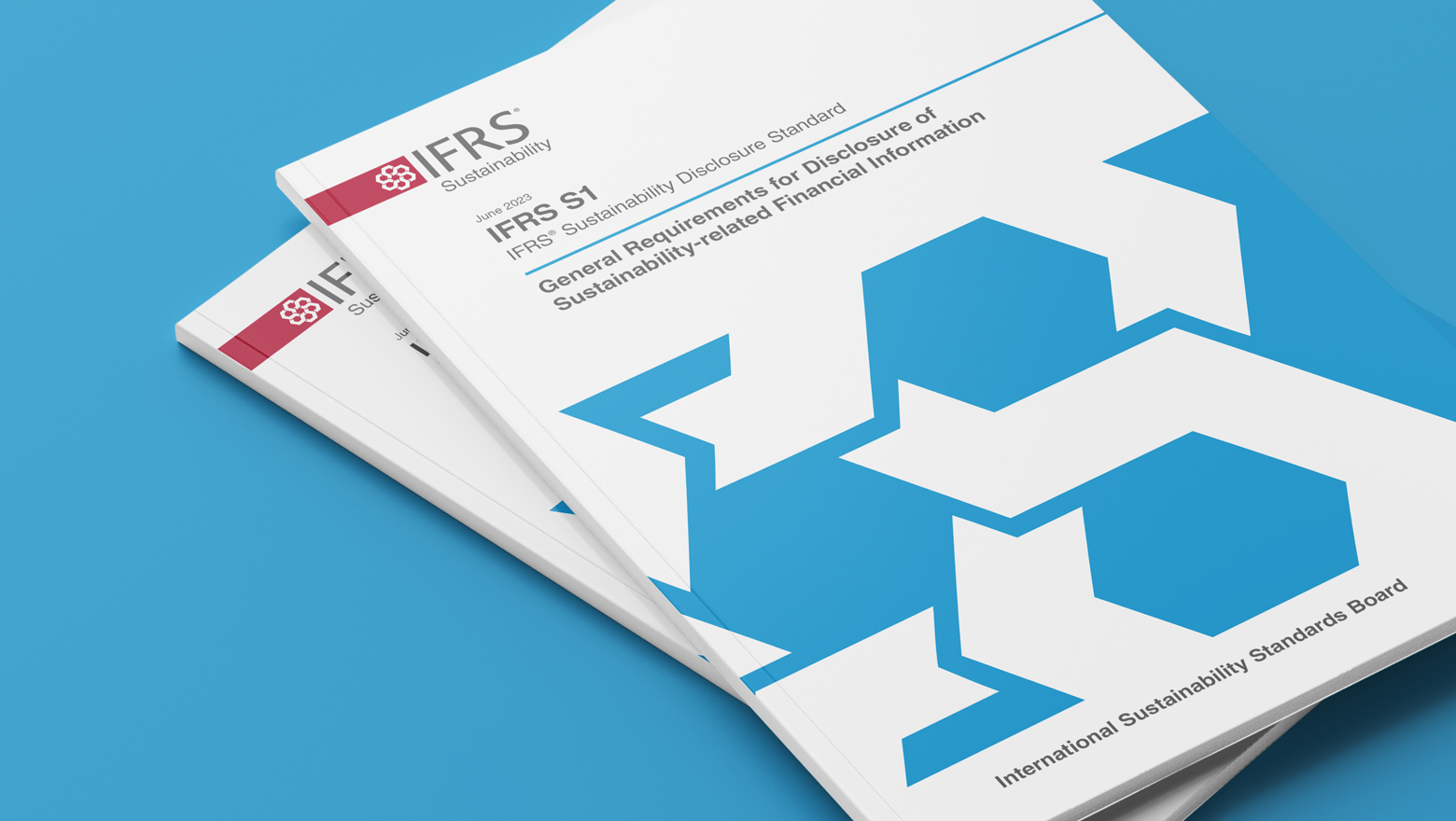
Stay informed with regulations, insights & events by joining our mailer
In a landmark development for sustainable finance and reporting, the International Sustainability Standards Board (ISSB) published its much-anticipated sustainability (IFRS1) and climate disclosure (IFRS2) standards last month—ushering in a new era of comprehensive sustainability-related disclosures in capital markets worldwide.
The two inaugural standards are designed to provide a comprehensive framework for companies around the world to disclose their environmental, social and governance (ESG) performance, thereby helping improve trust and confidence in company disclosures about sustainability.
The standards aim to enhance information available to investors and will ultimately help both companies and investors communicate about these issues in a more consistent and comparable way, regardless of where they are in the world. This uniformity will facilitate better comparison and benchmarking, enabling investors and stakeholders to make more informed decisions.
What you need to know about the new standards:
1. They build on the Taskforce for Climate-related Financial Disclosures (TCFD) framework and follow the four, by now well-recognised, pillars built around sustainability-related risks and opportunities: governance, strategy, risk management, and metrics and targets.
2. There is still no alignment on how to approach materiality. While ISSB Standards make it very clear that materiality is important to provide complete insight into an entity’s value, their approach is not fully aligned to the EU’s Corporate Sustainability Reporting Directive (CSRD). The ISSB focus remains on how sustainability and climate-related issues affect companies, whilst the CSRD adopts a “double materiality” which also requires to look at how businesses, in turn, impact sustainability issues.
We would encourage companies to think more holistically about sustainability risks and opportunities by adopting a double materiality approach.
3. Consistency is key: Companies’ priority should be to ensure consistency and comparability of disclosures year-on-year, including both qualitative and quantitative information. The ISSB has been working with well-established reporting frameworks such as the Global Reporting Initiative (GRI) Standards, to ensure integration and interoperability between the two sets of standards.
4. They take into account a company’s sustainability maturity: The aim of the proposed standards is to make financial statements more informative for investors, by giving them a clear picture of how much a company is really worth. To that end, the ISSB believes it's important to connect financial statements with sustainability reporting and for both reports to be published at the same time. However, the standards do take into account that not every company is at the same point on their sustainability journey. So, if a company doesn't have the skills or resources to give specific numbers about how sustainability could affect their finances, they don't have to (yet). The important thing is to be transparent and clearly explain any areas of non-compliance.
When will the standards be effective?
The ISSB Standards mark a significant milestone in advancing sustainable finance and reporting globally. Japan, Australia and the Hong Kong Stock Exchange have already declared their support for the ISSB Standards, with other countries set to follow suit (and most interestingly, the Securities and Exchange Commission (SEC) driving adoption in the US).
The UK Government has announced that it would be establishing a mechanism for formal endorsement and adoption of the standards, before adopting them into law. Whilst the timelines are currently unknown, rumours are that for the biggest UK companies, mandatory reporting could be effective as soon as January 2024.
At Ever Sustainable, we will be championing the adoption of the standards, as we see them as an opportunity for companies to enhance their ESG performance, improve transparency and strengthen stakeholder relationships.
Emmanuel Faber, ISSB Chair:
The ISSB Standards have been designed to help companies tell their sustainability story in a robust, comparable and verifiable manner. We have consulted closely with the market to ensure the standards are proportionate and will result in disclosures that are relevant for investment decision making."
How can we help?
Want to gain a better understanding for how the new standards could impact your business?
At Ever Sustainable, our team of double materiality, sustainability governance and strategy development experts can help you leverage these new standards to stand the test of time.
Get in touch if you want to find out more about how the ISSB Standards will change the way you are measuring and reporting impact.
